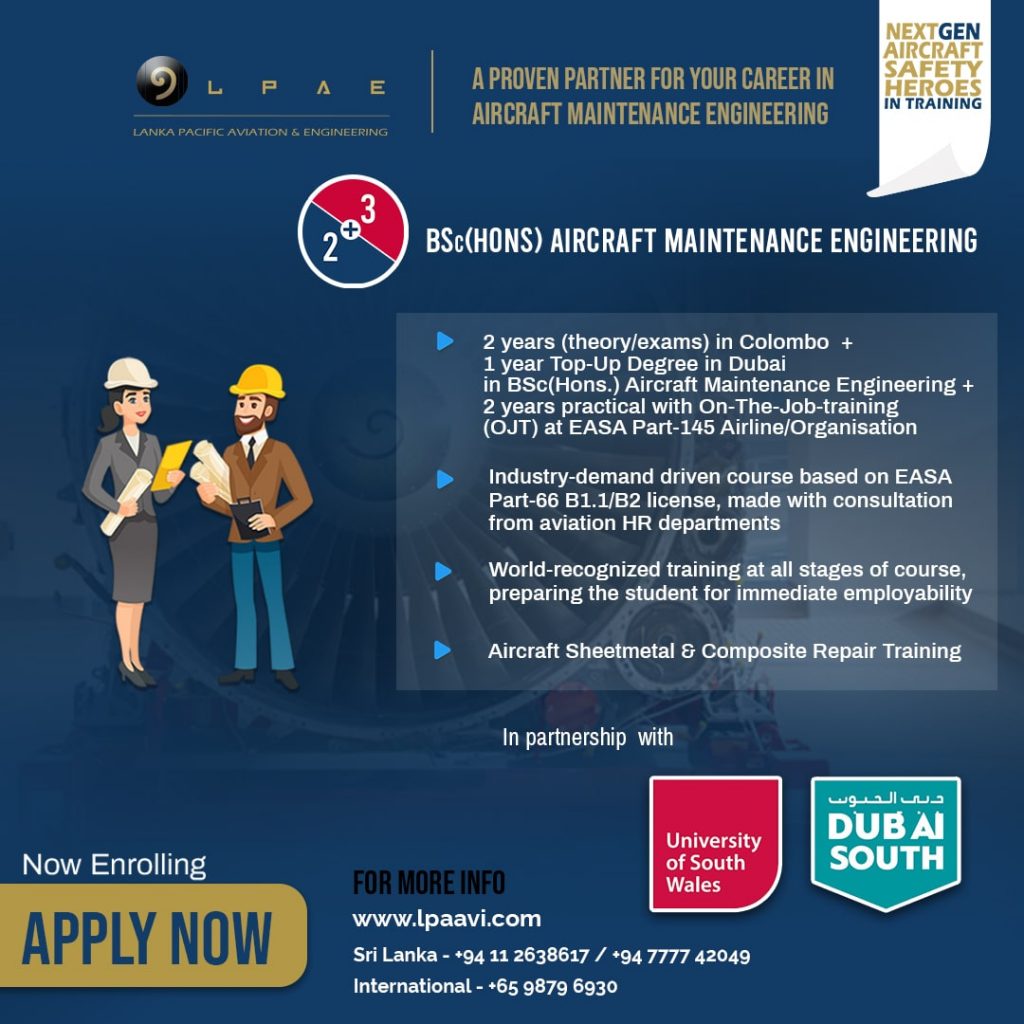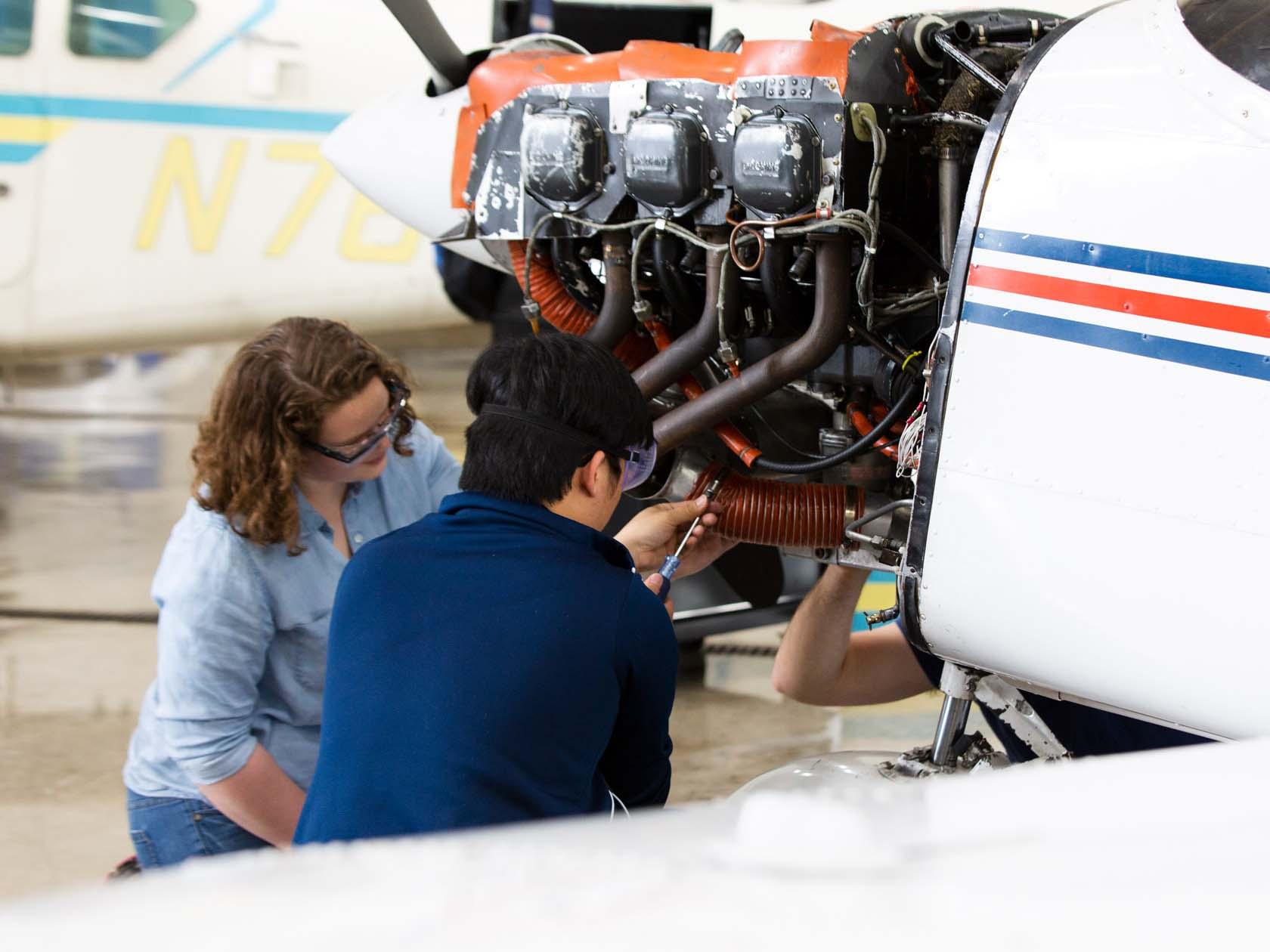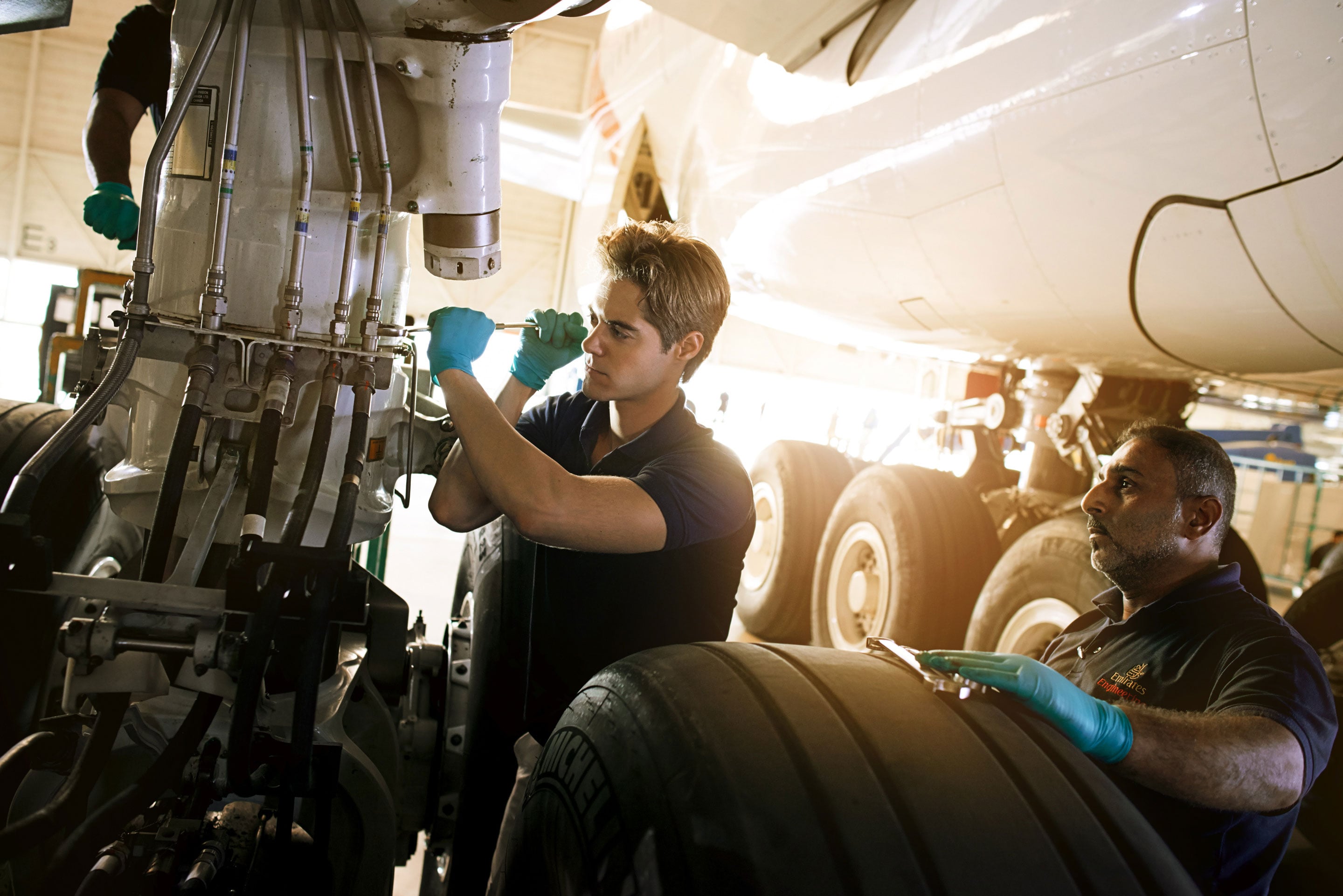Aircraft Maintenance Degree - Bachelor’s Degree in Aircraft Maintenance Technology – Four Year Duration At the bachelor's level, aircraft maintenance technology programs cover all of the subject areas listed above in the certificate / associate degree section. The bachelor's curriculum, though, generally also includes elements of aircraft maintenance management and aerospace engineering.
This course is targeted at international students wishing to study in Australia to gain an EASA Part 66 Aircraft Maintenance Engineer License outcome. Students learn the skills to maintain jet engines, brake and undercarriage systems, structural components, cabin pressurisation, fuel and pneumatic components, flight controls, hydraulics and much more.
Aircraft Maintenance Degree

Today's aircraft are sophisticated and complex. Tomorrow's will be even more. At Penn College, you'll learn the technical skills to repair the aircraft we have now, plus those we'll see in the future. And our hands-on approach to learning means lots of hours in the lab.
Bachelor Of Engineering Technology Aircraft Maintenance - Avionics Or Mechanical
Testing and troubleshooting theories. Learning how to fix integrated mechanical and electronic systems. All this training pays off when it comes time to take your FAA Mechanical License test and launch the career of your dreams.
Launch your engineering career with a Bachelor of Engineering Technology. Follow your aviation passion with a degree that combines university thinking with hands-on learning. The 3-year course is delivered in partnership by Aviation Australia and CQUniversity Australia.
The course provides students with the underpinning knowledge and skills to excel in management roles within aircraft maintenance facilities. Dive into what it takes to be an aviation technician with this snapshot of the AVI135 Basic Electricity II course.
![]()
Hour by hour, through hands-on activities and engaging classroom discussions, ideas that were mere concepts solidify into reality. In state-of-the-art labs, students train with equipment used by the pros. They even build their own pocket-sized oscilloscopes to visualize electrical signals.
Certificate Ii Aircraft Line Maintenance Mea
The following grading system is applied to all AVI-designated courses. There is no rounding of grades. A = 90 – 100 B = 80 – 89.99 C = 72 – 79.99 D = 70 – 71.99 F = 69.99 and below
Foundations are the practical, intellectual, and social skills: communication, collaboration, critical and ethical thinking, quantitative thinking, and technological literacy that are crucial to every student at every stage of education and at every stage of life.
Penn College students who complete the certificate in Aviation Maintenance Technician can apply 61 credits toward the Aviation Maintenance Technology degree. Penn College students who earn the associate's degree in Aviation Technology can apply 79 credits toward the Aviation Maintenance Technology degree.
Students from other institutions with an aviation-related degree or certificate will have their transcripts evaluated by Penn College officials prior to acceptance into the major. This major is subject to the transfer standards established by the College (see https://www.pct.edu/admissions/transfer/transferring-credits).

Exceptions must be approved by the school dean. This course is targeted at international students wishing to study in Australia to gain an EASA Part 66 Aircraft Maintenance Engineer License outcome. Students study avionics and electrical control systems within an aircraft as well as the repair and maintenance processes that apply to these systems.
Our diploma courses are European Aviation Safety Agency (EASA) accredited and the first step in your journey to a career as a Licensed Aircraft Maintenance Engineer (LAME). An EASA Certificate is highly regarded by airlines and Maintenance Repair Organizations (MROs) all over the world.
The typical curriculum covers both the airframe (structural) and power plant (engine) components of aircraft. Students learn about aircraft metal structures, fuel systems, electronics, hydraulics and propulsion systems, landing gear systems, and maintenance and inspection regulations.
At Penn College, we believe your educational experience should go beyond specialized skills. Real-world ready means taking a broader approach that builds communication skills, inspires collaboration, and encourages exploration of arts, history, and science. Message and data rates may apply.
For additional information, text HELP to 49595 or 49596. You may opt-out at any time by sending STOP to 49595 or 49596. Visit for Terms & Conditions and Privacy Policy. Automotive Mechanics Automotive mechanics training programs prepare students to work in the servicing and maintenance of cars.

Coursework covers preventive maintenance, brake systems, suspension systems, steering systems, wheel alignment, drive lines and axles, and electrical fundamentals. You have to have a lot of self-motivation and self-discipline when you are going to school online, but the amazing thing is that at Liberty you don't need to do it by yourself.
You really do have resources like someone who is going to school on campus. Perspectives are points of view, offering a variety of ways of understanding, interacting, and influencing the world. Students identify, explain, and utilize the approaches used by academics and
professionals to study, analyze, or understand problems, and offer solutions. Students under the age of 18 must nominate a parent, legal custodian or relative over 21 years of age as their student guardian. This person must have a visa to stay in Australia for the duration of your student visa or until you turn 18. Alternatively, an underage student may elect to reside with an approved accommodation provider whereby Aviation Australia signs a Confirmation of Appropriate Accommodation and Welfare (CAAW
). These arrangements will support their visa application. We provide training specialization to suit your personality and career goals. You can choose to specialize in either Mechanical or Avionics or complete both for a double diploma.
By studying either of these courses, your on the job requirement to achieve your license is reduced from a minimum of 5 years to a minimum of 2 years. Disclaimer: This calculator is a tool that provides a rough estimate of the total cost of tuition, and should not be relied upon to determine overall costs, as pricing may vary by program and tuition/fees are subject to change.

Estimates are not final or binding, and do not include potential financial aid eligibility. Mechanical Engineering Students of mechanical engineering learn how to research, design, develop, and test mechanical and thermal devices, including tools, sensors, engines, and machines.
These devices serve many industries, including the aerospace, medical, energy, and manufacturing sectors. Apprenticeship in Aircraft Maintenance Technology – Thirty Month Duration Aspiring aircraft mechanics and technicians with no formal training must complete a minimum of 30 months of verifiable on-the-job training under the supervision of an FAA licensed mechanic before they can take the FAA's certification exams.
By submitting contact information through this form, I agree that Liberty University and its affiliates may call and/or text me about its offerings by any phone number I have provided and may provide in the future, including any wireless number, using automated technology.
In this action-packed mini-camp, students will dive into the growing opportunities in the field of aviation maintenance. During this two-day immersive experience, they'll explore all the labs within the Lumley Aviation Center. Check out the hanger packed with a fleet of college-owned aircraft.
And learn what it takes to earn a Federal Aviation Administration (FAA) Airframe and Powerplant Mechanic Certificate. Certificate or Associate Degree in Aircraft Maintenance Technology – Eighteen Months to Two Years Duration The difference between certificate and associate degree programs in aircraft maintenance technology is often a difference in name only.

The important thing is to choose a school that is approved by the Federal Aviation Administration (FAA), because only graduates of FAA-approved programs qualify to sit for FAA airframe and power plant certification exams. This EASA approved training course provides basic level knowledge and skills to perform a range of specified maintenance tasks on aircraft on a flight line or at the departure gate.
This qualification is a pathway to achieving an EASA Category A Aircraft Maintenance Engineer License – which allows authorized personnel to release aircraft to service. Electrician This degree field prepares students to work as electricians – the tradespeople who install, maintain, and repair electrical wiring and systems, including heating, ventilation, air conditioning, security, lighting, and computer networks.
Programs may cover all types of electrical work, while others may focus on one of the four principal classifications of the electrical trade: residential, commercial, industrial, low voltage. Aerospace Engineering Aerospace engineering degree programs teach the analytical, computational, and engineering and design skills needed to work in the aerospace industry.
Students learn how to apply this knowledge to the manufacturing, testing, and monitoring of civil or commercial aircraft, military aircraft, missiles, rockets, spacecraft, lunar vehicles, and space stations.
aircraft maintenance management degree, aircraft maintenance schools, aircraft maintenance technician degrees, embry riddle aircraft maintenance, bachelor's degree in aircraft maintenance, aircraft maintenance technician school, aircraft maintenance university